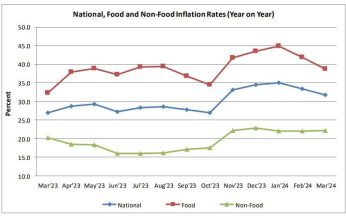Harmonisation of standards vital for trade
The report on “Identifying Priority Products and Value Chains for Standards Harmonisation in Africa” jointly published by the African Trade Policy Centre (ATPC) of the United Nations Economic Commission for Africa (ECA) and AU’s African Organisation for Standardisation (ARSO) has been launched with calls for countries on the continent to harmonise standards.
The unveiling took place during a webinar to launch a series of Pan African Quality Infrastructure publications in support of African Continental Free Trade Area (AfCFTA) implementation.

Speaking at the webinar, ATPC coordinator David Luke emphasised that the AfCFTA Agreement has the potential to be a game changer for Africa’s industrialisation but it is now widely understood that the industrialisation and trade potential of the AfCFTA will not be realised without adequate quality infrastructure systems including metrology, standardisation, accreditation, quality management and conformity assessment.
He further commended the “significant progress in harmonising standards at the Regional Economic Community (REC) level”, while also pointing out that “gaps remain, and efforts by the RECs have not been sufficiently coordinated at the continental level.”
On her part, ATPC trade expert Lily Sommer, presented the main findings and recommendations of the report, highlighting that AfCFTA offers an opportunity for existing RECs to tap into under-exploited market opportunities in other African countries (outside their current RECs).
The discussions highlighted the need for the continental standards harmonisation process to be underpinned by existing WTO TBT and SPS Agreements as sources of best practice, but with adaptations for Africa’s development needs; continental structures to support the development of African Quality Standards, such as ARSO; existing REC standards harmonisation catalogues, which already provide harmonised standards across countries within the same REC; value chain priorities that are common across RECs, and which offer potential for strong forward and backward linkages.
Luke concluded by announcing ECA’s new collaborative project with ARSO to develop outreach materials on the traditional medicines sector.
He noted that around 80 percent of the population living in Africa rely on traditional forms of medicine to meet their health care needs, but African traditional medicine suffers from a serious lack of documentation which can lead to incorrect usage.
The project is expected to contribute to ensuring the quality, safety, and efficacy of traditional medicines. n





